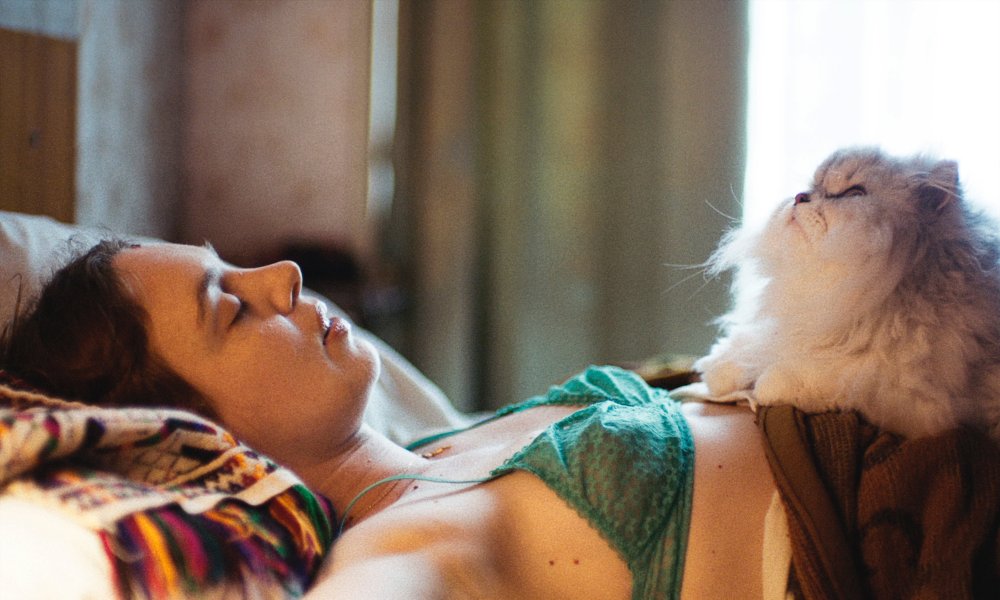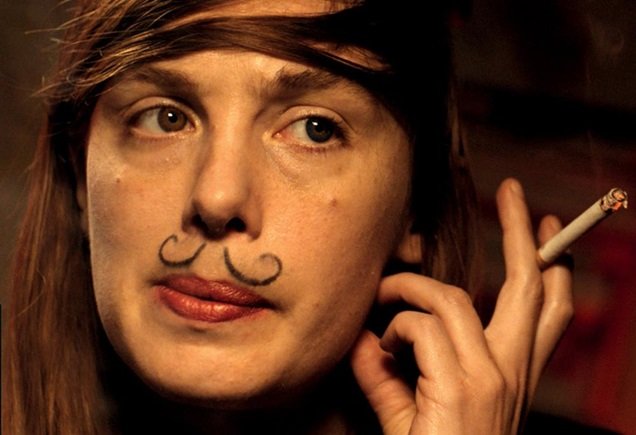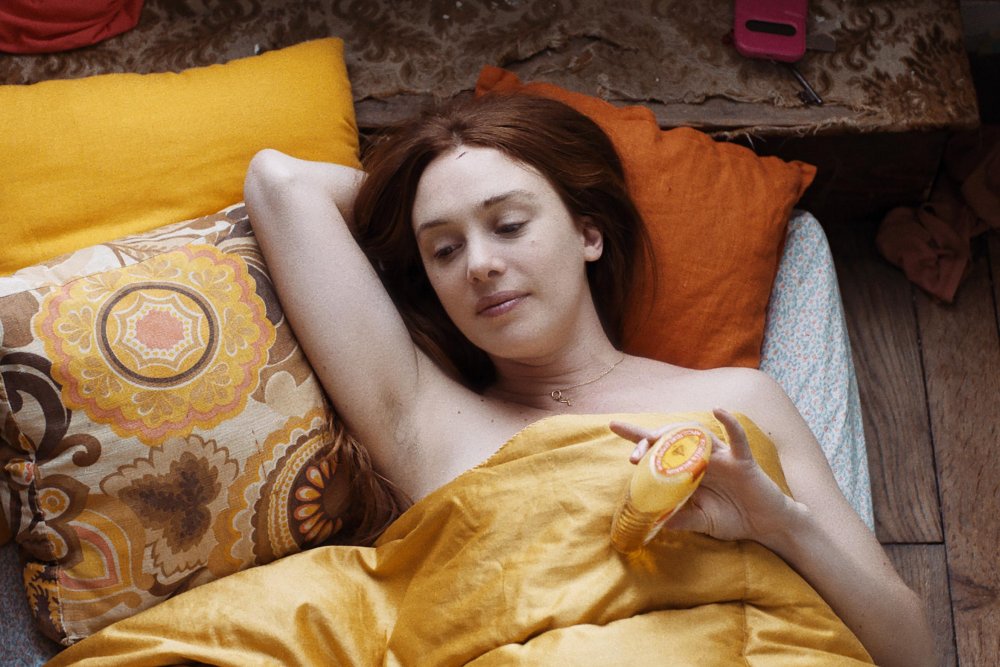A livewire performance by French actress Laetitia Dosch is the wild heart of Léonor Serraille’s debut feature Montparnasse Bienvenue (Jeune Femme), which had its world premiere in Un Certain Regard strand of the Cannes Film Festival.
France 2017
97 mins
Director Léonor Serraille
Cast
Paula Laetitia Dosch
Joachim Grégoire Monsaingeon
Ousmane Souleymane Seye Ndiaye
Yuki Léonie Simaga
Original French title Montparnasse Bienvenue (Jeune femme)
UK premiere Sunday 8, Monday 9 and Sunday 15 October at the London Film Festival
UK release date 18 May 2018
Distributor Curzon Artificial Eye
► Trailer
With a mane of Pre-Raphaelite hair bouncing behind her, and an impossibly furry white cat clasped to her chest, Dosch’s 31-year-old Paula ping-pongs across Paris in the wake of a breakup.
Dosch plays Paula as entirely undaunted by the change in her horizons. Rather than sinking into a funk, she flies high, possessed by a life-seeking energy. Not everyone can take her spirited presence: on Paula’s first night as a solo traveller she stays with a pregnant friend, but defends a jibe directed at her cat by questioning her pal’s mothering potential. The friend boots her out immediately.

Jeune femme (Montparnasse Bienvenue, 2017)
This feline, Muchaca, whom Paula has catnapped, has a stern face peering out from a formless mound of fluff and steals every scene, usually by lurking expressively in the corner of the frame. Wealthy Joachim (Grégoire Monsaingeon) is the real owner and he is also the man Paula has left behind. We see his door in the opening scene as Paula injures herself attacking it, but we do not see him, and by extension her former life, until the third act.
Instead, in Serraile’s shaggy-dog character study, scene after scene shows non-conformist Paula throw herself towards anything that could represent a future. Her heart-on-sleeve charm leads to two jobs: as a salesgirl in a lingerie shop, and as a childminder to serious little Lila (Lila-Rose Gilberti).
Paula’s persona is not calculated in the slightest. Whether replying to job interview questions with a sense of humour, or answering the door of her motel room naked, she acts according to impulse, and is too busy looking forward to reflect on whether those impulses are serving her well. “I’m not as bright as you,” she screams early on. This isn’t self-deprecation, but self-awareness, gained in the heart of a moment.

Laetitia Dosch in Montparnasse Bienvenue (Jeune Femme)
Valérie Valéro’s production design uses Paula’s orange hair as inspiration for complementary backdrops. Moments of stillness are shot against azure blue, bubblegum pink or burnt sienna, creating striking images. Perky French electronica dominates the soundtrack, setting the tone for Paula’s irresistible momentum.
Inevitably, the past does come calling for Paula in the form of her domineering ex-boyfriend, while she pursues reconciliation with her estranged mother. By this point, she has new allies: Ousmane (Souleymane Seye Ndiaye), the security guard at the shop, and Yuki (Léonie Simaga), a friend she picks up in a bizarre misunderstanding.
Serraille is less interested in neatly resolving plot strands than she is in depicting the furious moment with all its colour and confusion – a state cinema rarely captures. She makes no attempt to give Paula grand social significance or a clear moral position. All that can be said about her identity is in the French title: she is a young woman.
-
BFI London Film Festival 2017 – all our coverage

Follow all our coverage of the 61st London Film Festival, including reviews of the top films, interviews with their makers and blog posts from our...
-
The Digital Edition and Archive quick link
Log in here to your digital edition and archive subscription, take a look at the packages on offer and buy a subscription.









